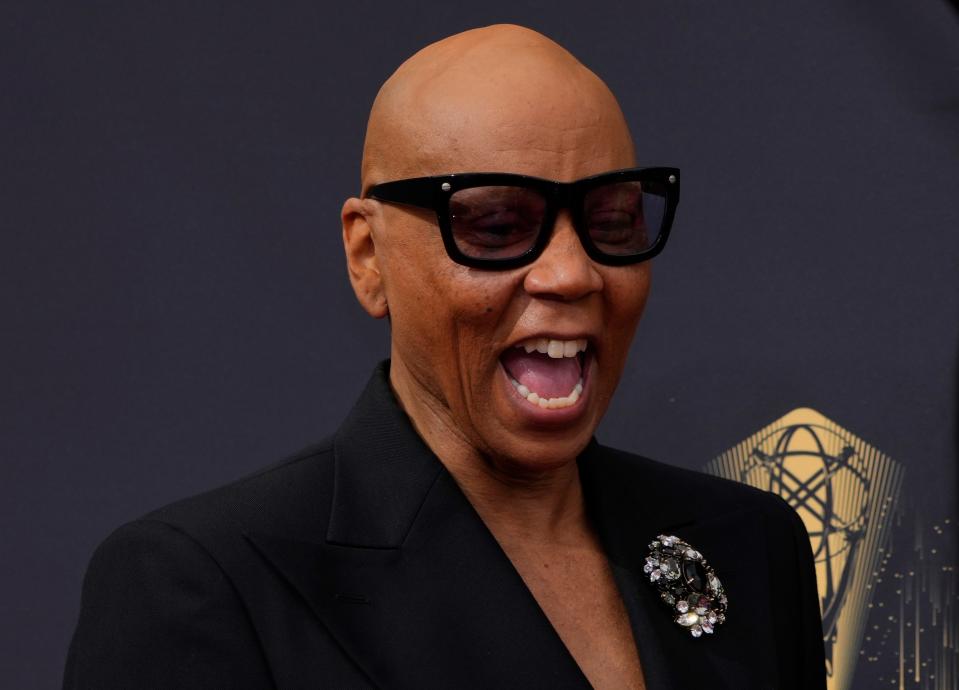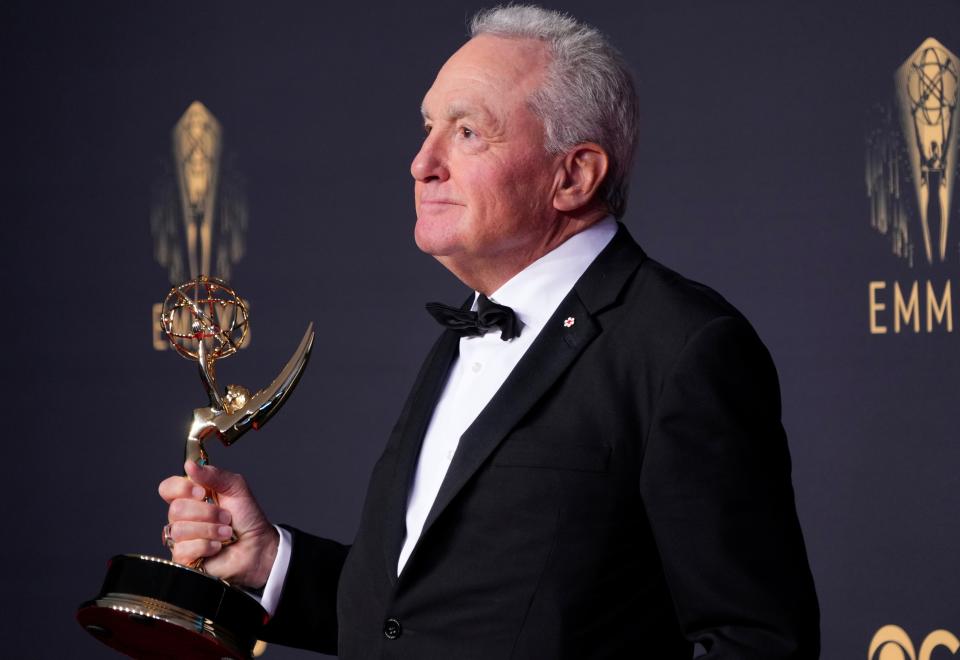John Oliver has a great show. But here's why his Emmy win streak makes the awards feel stale
"Last Week Tonight With John Oliver" won its sixth consecutive variety talk series Emmy Sunday.
Good for John Oliver. Boring for the Emmys.
When it comes to who-will-win anticipation, television's Emmys have a major disadvantage compared to other entertainment awards shows. Whereas the Oscars, Tonys and Grammys feature a mostly brand new list of nominees each year, the Emmys often are burdened by the usual suspects of long-running programs that show up every year.
Once an excellent program – along with its marquee actors or hosts – gets the first statuette, it can become an perennial occurrence, eliminating the chance for fresh faces to shine in the awards spotlight. Sometimes, the repeat wins are deserved. But sometimes it seems like Television Academy voters go on autopilot. Consider the last couple of seasons of "Game of Thrones."
Who took home an Emmy? Winners list: 'Hacks,' 'Ted Lasso,' 'Mare of Easttown' score multiple prizes

Even with the best shows, too many wins can be too much. "The Daily Show With Jon Stewart" is an all-time great, but its 10 consecutive wins for best comedy, music or variety series got really tired, to take nothing away from the program itself.
Oliver's dominance is so obvious it became a punchline Sunday during Stephen Colbert's acceptance speech for best variety special Emmy for his 2020 election show.
"I want to thank 'Ted Lasso' and 'Last Week Tonight' for not being in this category," he said of Oliver's HBO show and the Apple TV+ comedy that was one of the night's biggest winners. Colbert's CBS talk show was a runner-up in the variety talk series category.
Curbing perennial winners would enliven the competition. The TV academy would be wise to impose what Candice Bergen did voluntarily when she declined further nominations for her portrayal of "Murphy Brown" after five wins and seven nominations from 1989 to 1995.
Cap the number of wins for a particular series or actor at five – consecutive, or even better, total. Call it anti-"Jeopardy!" The quiz show traditionally said goodbye to its champs after five straight wins before lifting the cap and creating superstar winners like Ken Jennings, who increased excitement and interest in the series. But what works for "Jeopardy!" doesn't necessarily work for an awards presentation.
An Emmy restriction wouldn’t affect as many scripted series as it would have in the past because so many programs in this streaming era don’t even run five seasons. The kinds of shows that do last that long – we’re talking to you, broadcast – rarely win Emmys, let alone receive many nominations.
This limit would help the most with the types of categories – variety sketch, variety talk and reality competition – where programs go on forever. No award category was more of a yawner than reality competition during the period when “The Amazing Race” won 10 out of 12 times, including seven in a row from 2003 to 2009.
Big winners: Emmys 2021: Jason Sudeikis wins for 'Ted Lasso,' Jean Smart snags honor for 'Hacks'

"Saturday Night Live," which won its fifth straight Emmy for variety sketch series Sunday, could make room for others, too. "There was just one other nominee in its category, "A Black Lady Sketch Show."
As with Oliver’s “Last Week,” RuPaul Charles, who won his sixth consecutive Emmy as host of a reality or competition program, would have his victories capped. As executive producer of "RuPaul's Drag Race," he picked up another Emmy Sunday when that show won its fourth consecutive competition program prize, making his 11 Emmys the highest lifetime total for a Black artist.
Regrettably, a five-win cap would inhibit RuPaul's ability to increase that total – "Drag Race" would still be eligible as a series – but consider the alternative. At a time when people of color, traditionally underrepresented at awards shows, are starting to get more nominations, having perennial winners played off gracefully might lead to more inclusivity by providing an opportunity for new or neglected nominees to claim the big prizes.
As far as variety talk series in particular, it also would make sense to split the category in two: those that present one episode per week vs. those that air multiple times. You can't polish a five-night-a-week program the way you can a weekly one.

The cap isn’t meant to diminish deserving recipients. While such a limit might seem unfair, five wins offers plenty of time to bask in awards glow for a particular series or role, certainly long enough to maximize career benefits for those involved. Maybe five-time winners could get a platinum Emmy and a spot in a retired champs hall of fame.
Above all, a greater chance for new winners would add a bit of excitement to an Emmy presentation that should be doing whatever it can to keep viewers from losing interest.
Based on Oliver's comments to reporters after winning – in a two-fisted touch, holding his variety talk and variety writing Emmys – he probably wouldn't be on board with this suggestion. Despite his heartfelt acceptance speech tribute to nominee Conan O'Brien (who Oliver called a "monumentally influential figure to all of us”), the HBO host is not sharing.
“Conan? No. He can take them from my cold dead hand. I realize I said that I appreciate him – not that much," he said.
Maybe the clout of never-ending winners like Oliver is the reason capping trophies hasn't caught on. But think of it this way: For every eternal champ with a boring Emmy-winning streak, there are at least four frustrated nominees who might like to change the rules.
Contributing: Charles Trepany
This article originally appeared on USA TODAY: John Oliver's sixth straight Emmy shows why awards should be capped


